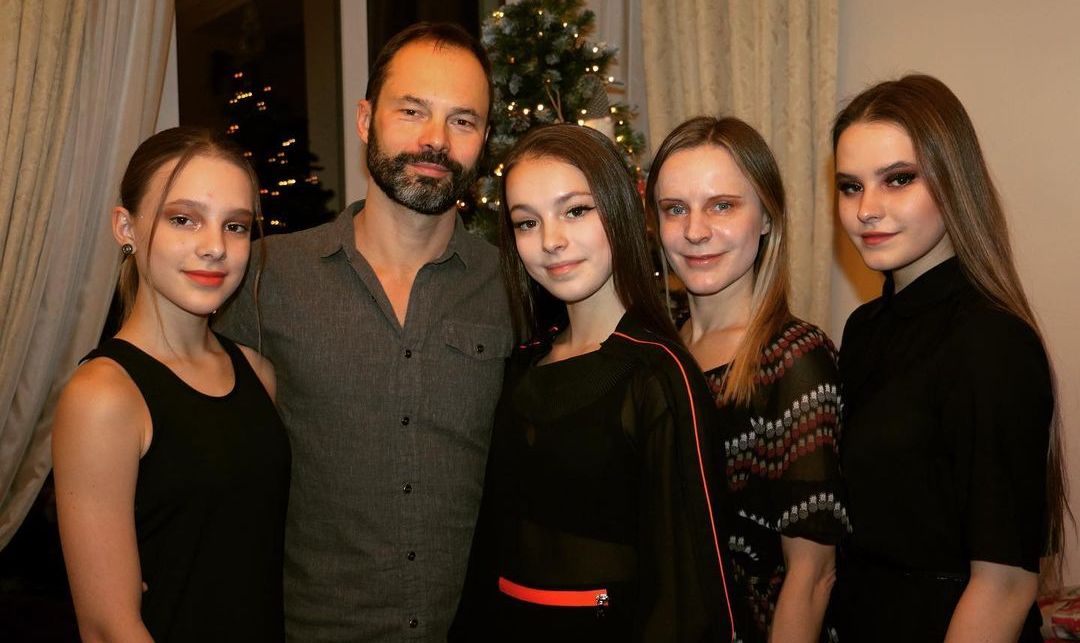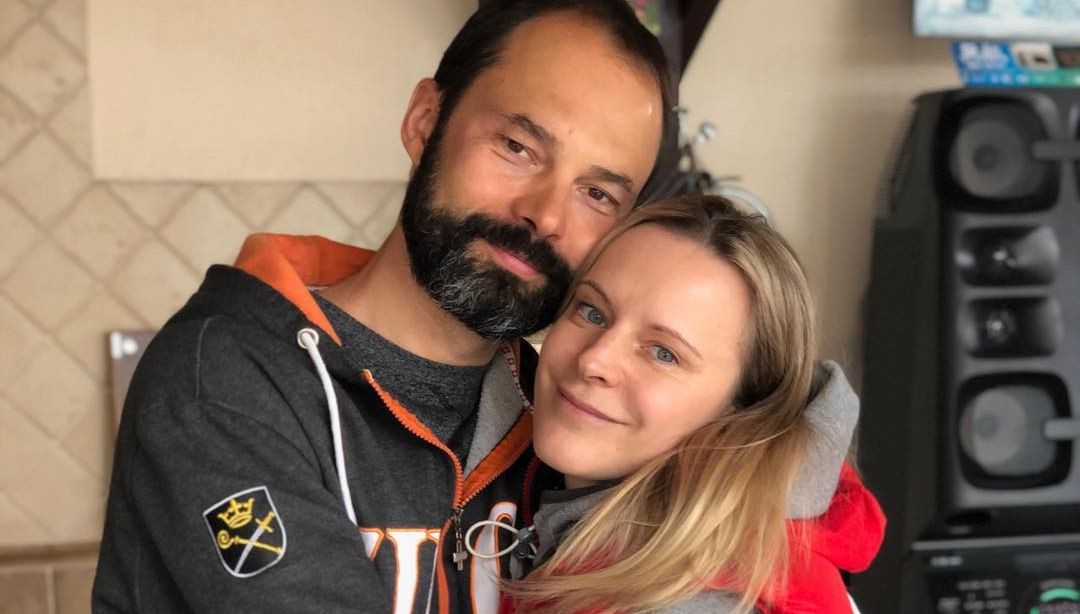Anna Shcherbakova’s described feeling empty after her gold medal win. Euphoria usually accompanies gold medal wins, but an air of sadness engulfed Anna’s victory at the Olympics. The expected winner, Kamila Valieva, crumbled during her last performance, sobbing as she realized her efforts fell short of a top-three finish.
Consequently, all eyes were on Kamila as the weight of her doping scandal finally seemed to overwhelm her. Instead of celebrating with Anna, the Russian team consoled Kamila.
Nevertheless, Anna put in a flawless performance, beating silver medalist Alexandra Trusova by 4.22 points. This piece will look at Anna Shcherbakova’s parents and the support they’ve offered Anna.
Anna’s mother quit her job to drive Anna to figure skating practice

Anna Shcherbakova was born in Moscow, Russia, to Stanislav and Julia. She grew up alongside her sister Inna.
Stanislav and Julia introduced their kids to figure skating to keep them healthy. However, the pair quickly realized that Anna had a talent and liking for it. She refused to be persuaded to leave the sport.
After Anna joined coach Eteri Georgievna’s group, it became virtually impossible to stop her skating. Julia became Anna’s companion to practice, which forced her to quit her job. Julia told Sport-Express:
“Firstly, I had to drive to take the children to training, and I don’t really like it, the first trips were a lot of stress. Secondly, to quit my job in order to take my children to training, which I still regret. And a lot of things had to change, just to take the children to training.”
Julia’s limited her role to motherhood and didn’t try to influence Anna’s practice. She would make the occasional comment, but her primary role was to support. Julia explained: “Moreover, I am not an expert in figure skating. My role is more of a psychological support.”
She also accompanied Anna to competitions, where the pair developed a winning routine. Julia enjoyed spending time with Anna, but with time, she became too nervous to watch some of the performances. “My nerves can’t withstand the strain at all,” she said.
Now the family’s sole breadwinner, Stanislav rarely appeared for practice, but he tried to attend competitions. He told Sport-Express that he enjoyed watching Anna impress a crowd:
“I like being a spectator. I don’t understand jumps, spins, or other technical details. I can’t even highlight the step track in the program. When your child raises an entire hall, it’s an indescribable feeling. Pride for having coped, betrayed, opened up, pulled out, collected, endured, and even preserved the image.”
At home, Stanislav ensured that Anna adhered to her study routine. “I am strict in that for me there is no word ‘tomorrow,’” he said. “No matter how tired Anya is after a workout or would like to sleep in the morning, she knows that classes with teachers cannot be missed.”
Anna’s parents didn’t think she would continue skating after breaking her leg

Before her first international season, Anna broke her leg during training. Anna’s parents didn’t expect her to walk again normally, let alone return to the rink. Stanislav told Russia Beyond:
“After six weeks in a full cast, the leg looked quite unusual – it was just a shapeless something that hardly bent at all. We needed a great deal of faith in the power of nature to reassure ourselves that everything would straighten out, the leg would return to normal, and the child would be able to walk like everyone else without limping. And returning to the rink – I took it as a great miracle, no less.”
Anna recovered and won international junior youth competitions. She is now an Olympic gold-medalist and the World Champion – she sits at the top of the figure skating world five years after a broken leg nearly ended her career.
Stanislav and Julia talked to Sports-Express about the prospect of Anna retiring at seventeen (Anna’s current age). Julia appeared to have no qualms about it, but Stanislav expressed reservations: he considered 17 too early to retire. He said:
“If Anya finishes at 17, then of course I will be upset. In addition to being a quadist, she is also an artist, the transfer of images is her forte. At 17, and even at 20, some images are simply too early to reveal. It will be an unfinished song, no matter what medals it has collected by that moment.”